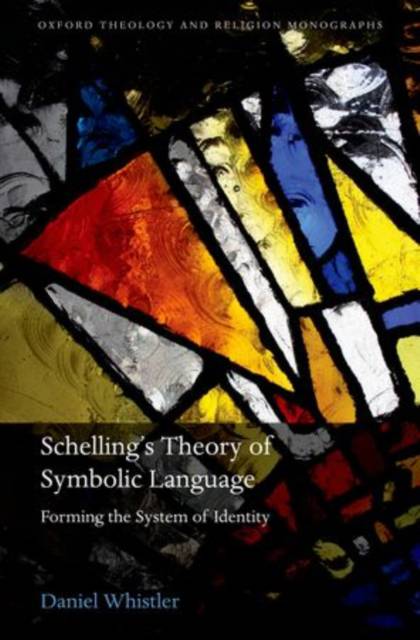
Door een staking bij bpost kan je online bestelling op dit moment iets langer onderweg zijn dan voorzien. Dringend iets nodig? Onze winkels ontvangen jou met open armen!
- Afhalen na 1 uur in een winkel met voorraad
- Gratis thuislevering in België vanaf € 30
- Ruim aanbod met 7 miljoen producten
Door een staking bij bpost kan je online bestelling op dit moment iets langer onderweg zijn dan voorzien. Dringend iets nodig? Onze winkels ontvangen jou met open armen!
- Afhalen na 1 uur in een winkel met voorraad
- Gratis thuislevering in België vanaf € 30
- Ruim aanbod met 7 miljoen producten
Zoeken
€ 221,95
+ 443 punten
Omschrijving
This study reconstructs F.W.J. Schelling's philosophy of language based on a detailed reading of SC73 of Schelling's lectures on the Philosophy of Art. Daniel Whistler argues that the concept of the symbol present in this lecture course, and elsewhere in Schelling's writings of the period, provides the key for a non-referential conception of language, where what matters is the intensity at which identity is produced. Such a reconstruction leads Whistler to a detailed analysis of Schelling's system of identity, his grand project of the years 1801 to 1805, which has been continually neglected by contemporary scholarship. In particular, Whistler recovers the concepts of quantitative differentiation and construction as central to Schelling's project of the period. This reconstruction also leads to an original reading of the origins of the concept of the symbol in German thought: there is not one "romantic symbol", but a whole plethora of experiments in theorising symbolism taking
place at the turn of the nineteenth century. At stake, then, is Schelling as a philosopher of language, Schelling as a systematiser of identity, and Schelling as a theorist of the symbol.
place at the turn of the nineteenth century. At stake, then, is Schelling as a philosopher of language, Schelling as a systematiser of identity, and Schelling as a theorist of the symbol.
Specificaties
Betrokkenen
- Auteur(s):
- Uitgeverij:
Inhoud
- Aantal bladzijden:
- 276
- Taal:
- Engels
- Reeks:
Eigenschappen
- Productcode (EAN):
- 9780199673735
- Verschijningsdatum:
- 19/05/2013
- Uitvoering:
- Hardcover
- Formaat:
- Ongenaaid / garenloos gebonden
- Afmetingen:
- 236 mm x 163 mm
- Gewicht:
- 584 g

Alleen bij Standaard Boekhandel
+ 443 punten op je klantenkaart van Standaard Boekhandel
Beoordelingen
We publiceren alleen reviews die voldoen aan de voorwaarden voor reviews. Bekijk onze voorwaarden voor reviews.











